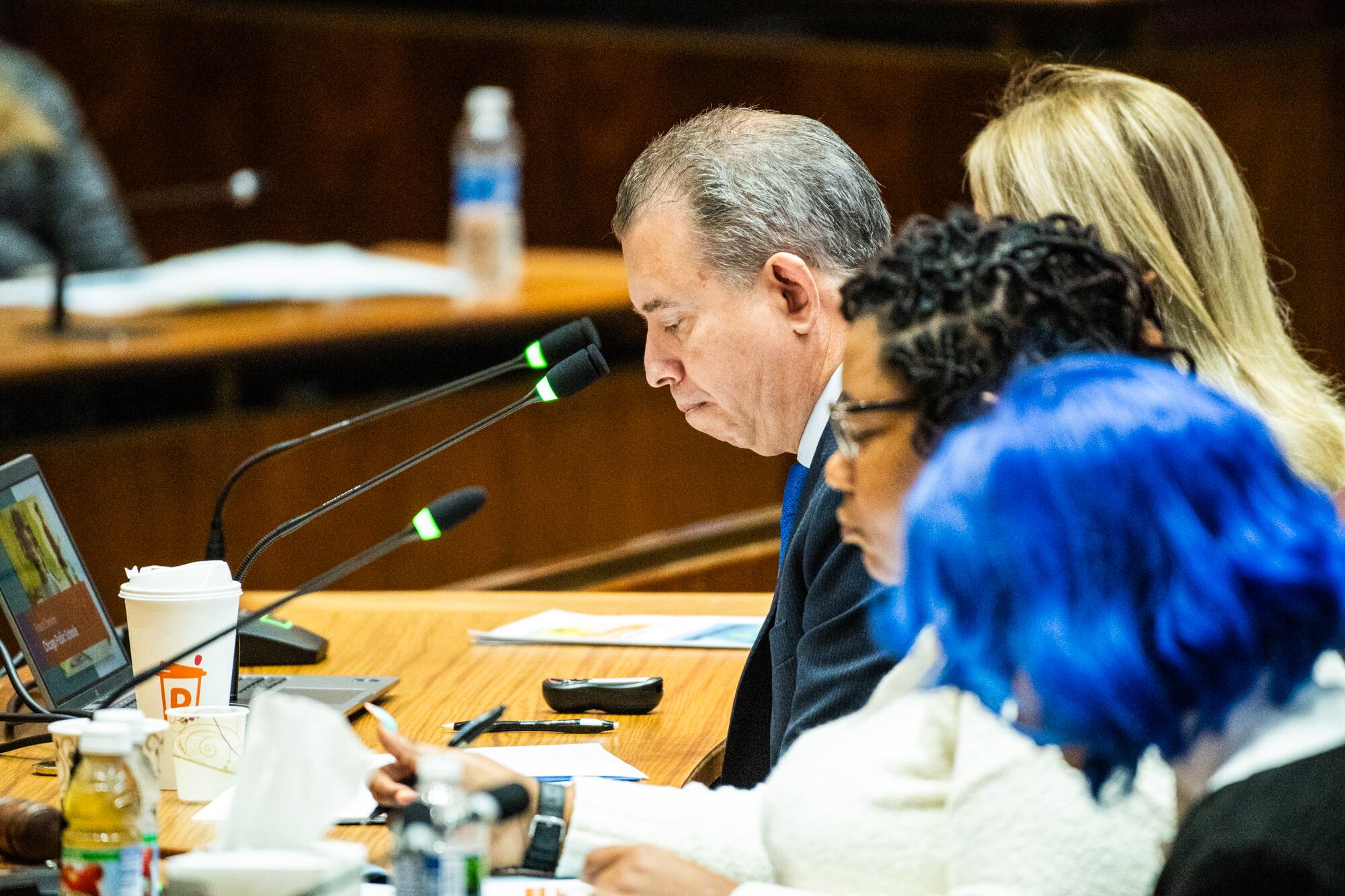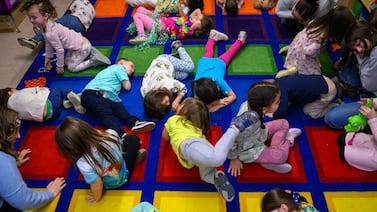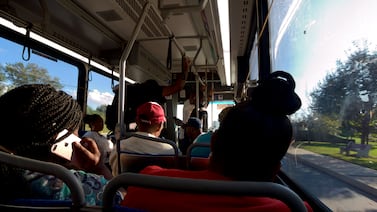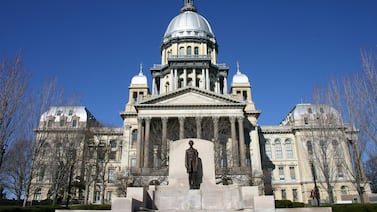Sign up for Chalkbeat Chicago’s free daily newsletter to keep up with the latest education news.
During a sometimes tense City Council hearing Wednesday, Chicago Public Schools CEO Pedro Martinez asked alderpeople for an additional $325 million in city funding amid an extraordinary leadership shakeup at the district that is rooted in budget problems.
During the more than five-hour hearing for the council’s Committee on Education and Child Development, Martinez also told alderpeople that no cuts are planned for this school year, but the district would have to resort to them if it doesn’t get additional revenue or doesn’t borrow money.
West Side Ald. Jason Ervin, who was perhaps the most critical of Martinez on Wednesday, asked the schools chief why the city should redirect funding that could benefit low-income West Side neighborhoods to “bail out CPS.”
“What I am asking for — for the record, alders — is to protect the investments that have went to our highest poverty schools, many schools on the South and West side,” Martinez replied.
Wednesday’s hearing was called because alderpeople “wanted to get some clarity around the budget,” said Ald. Jeanette Taylor, who chairs the education committee. The hearing was scheduled following the extraordinary resignation two weeks ago of all seven members of the Chicago Board of Education. Six of those members were appointed by Mayor Brandon Johnson, who last month asked Martinez to resign following budget-related disagreements.
Former and current board members were invited to attend Wednesday’s meeting but declined, Taylor said. Multiple alderpeople expressed disappointment that none showed up. Ald. Scott Waguespack said the new board “better show up here” when asked in the future.
The board and the mayor’s office described the board shakeup as a natural transition as the city prepares to vote for its first elected school board members, who will be sworn in in January alongside mayoral appointees. But sources with knowledge of the situation have said the resignations were related to the board’s unwillingness to side with the mayor on a couple of key points, including to fire Martinez for cause and take out a short-term loan to help cover some large looming costs.
By state law, the mayor’s appointments for the new school board must live in areas where someone has not won an elected seat — something the public won’t know for certain until after the Nov. 5 election.
Mayor, CPS spar over how to solve the district’s money problems
At the heart of the recent leadership turmoil – and the backdrop of Wednesday’s hearing – is disagreement between the district and City Hall on how to cover major upcoming costs for the school system. That includes a $175 million pension payment for non-teaching staff and costs related to a new Chicago Teachers Union and principals contracts.
The district closed a more than $500 million deficit for its budget this year, a hole exacerbated by the expiration of billions in COVID relief money from the federal government. But it did not budget for the looming pension and labor costs, and without additional funding, would have to resort to cuts or borrow money, officials said.
Despite the acrimony, Martinez largely declined to criticize the mayor and attempted to strike a tone of unity. He said he, Johnson, and the teachers union are “frankly in alignment of visions” for a more well-funded school system and must make that case to state lawmakers when requesting more money in the future.
For now, however, Martinez asked the City Council to provide CPS additional funding by declaring a surplus of Tax Increment Financing, or TIF dollars. These funds come from special taxing districts designed to spur new development and fight blight. Chicago has dozens of TIFs with more than $2.5 billion in property tax revenue. When a surplus is declared, money that’s not earmarked for projects goes back to the local taxing bodies, including CPS. Roughly half of any surplus goes to CPS.
Martinez publicly requested city money last week but said he’s been privately asking for that money since April. The mayor’s response, he said, was to ask CPS to take out a short-term loan.
Martinez’s request for more city funding would come on top of $159 million in TIF dollars the district is already slated to get. The additional funds would cover the pension payment, as well as 4% raises for teachers, more health care benefits, an expansion of Sustainable Community Schools, and more staff, the district said. The union’s wide-ranging proposals include 9% raises, as well as calls for more staffing and additional support for students, including affordable housing access for those who are homeless.
Additional city money would help the district avert cuts, CPS officials argue. They have repeatedly pointed to improved reading and math scores at the district since the pandemic – some of the highest in the nation, according to one study – largely because of billions in federal COVID relief dollars, and why that level of funding must be maintained to build on those academic gains.
Martinez grilled on budget solutions, short-term loan
The district has so far declined to take a loan out of concerns that it will downgrade its bond rating status and saddle the district with high interest costs that would take money away from hiring “teachers, counselors, and social workers,” Martinez said.
Alderpeople probed Martinez on a range of issues, including how the district allocates funding for schools, what his strategy is for getting more money, and what it would mean for the district to take out a short-term loan to pay for ongoing costs.
Ald. Angela Clay asked Martinez how the district would cover costs next year, when it is expected to face another $500 million deficit, if the city bailed CPS out this year. Martinez said he hopes TIF districts will expire under Johnson, potentially freeing up more money for CPS. He added that he will ask for City Council “and the mayor’s help” to advocate for more state funding.
While the state has been increasing its share of funding for CPS, its funding formula says the district needs an additional $1.2 billion to be considered adequately funded. State leaders, however, have said more money than what CPS has already received is not coming.
Some alderpeople seemed reluctant to provide more money for CPS when dozens of its schools enroll fewer than 200 students. Martinez countered that schools need more resources in order to boost enrollment.
Alds. Byron Sigcho-Lopez and Ervin, both close allies of the mayor, raised concerns about shifting TIF dollars meant to improve blighted communities in their wards to help buoy CPS’s budget. Ald. Nicole Lee said she wants to give the district more TIF money, but it’s a “short-term solution” and it’s difficult to know how much will be available.
“Can’t squeeze blood out of stone,” Lee told Martinez. “We only have so much money as a city.”
A few alderpeople who have been critical of the mayor peppered Martinez with questions about the mayor’s request for a short-term loan to help cover some of the costs.
Waguespack asked what sort of response the district would get from credit agencies if a new board comes in, approves a short-term loan, and fires Martinez. Miroslava Mejia Krug, the district’s chief financial officer, said she expects credit agencies to downgrade the district’s bond rating in response.
In a statement previously provided to Chalkbeat, Mayor’s office spokesperson Ronnie Reese said Matinez “flatly refused” to adopt a budget that included labor contract and pension costs “as covered by TIFs and additional financing.”
Reema Amin is a reporter covering Chicago Public Schools. Contact Reema at ramin@chalkbeat.org .







